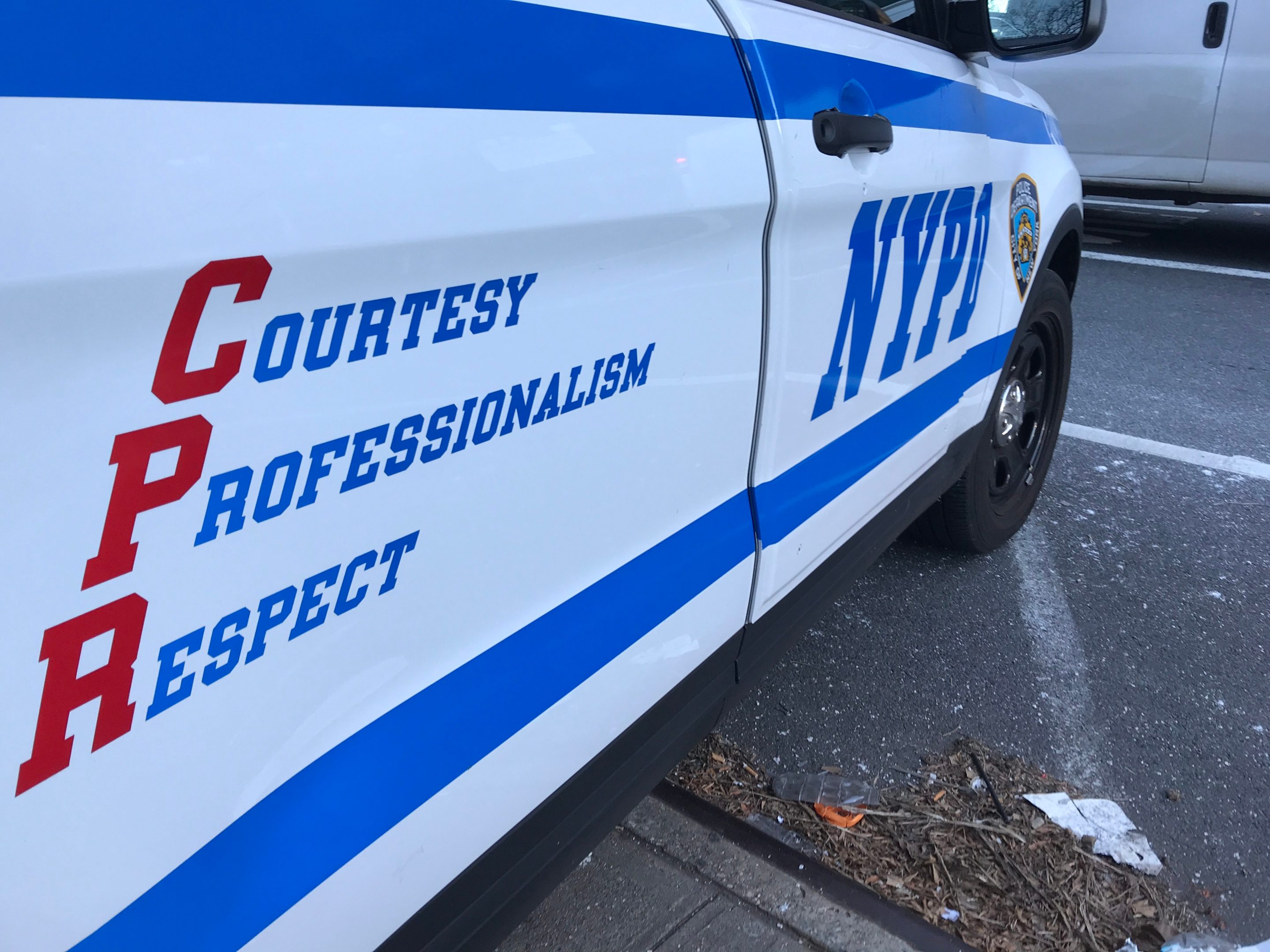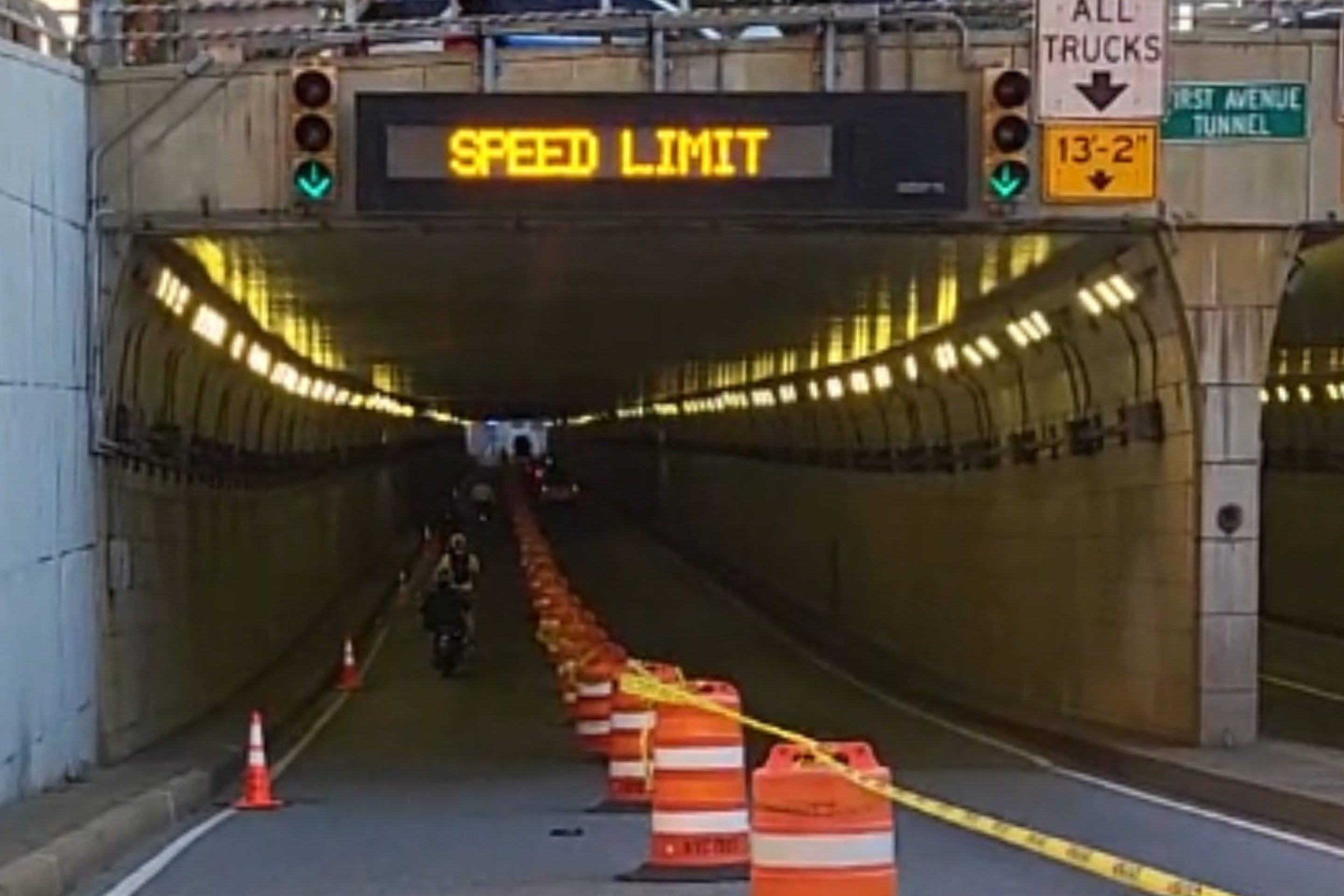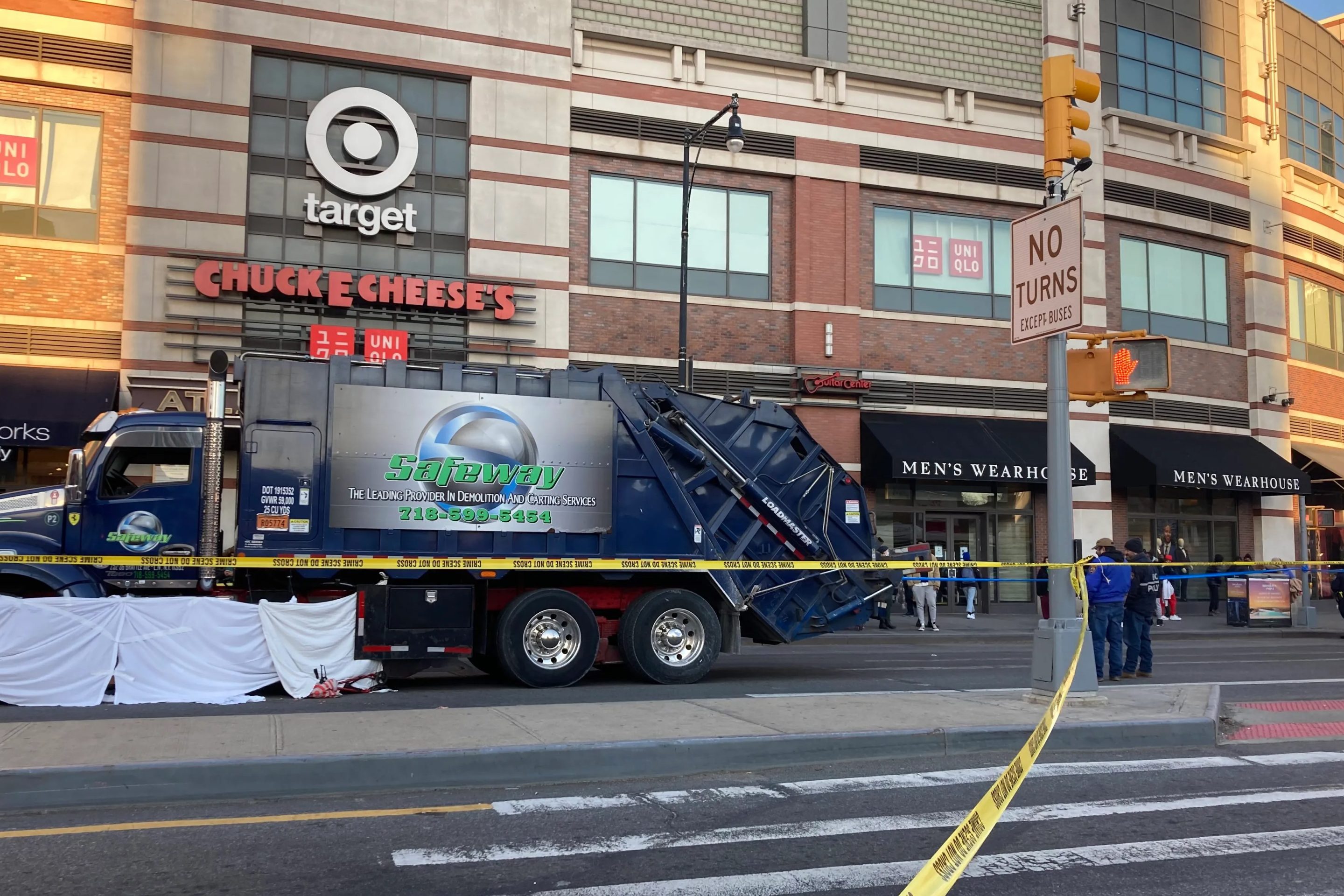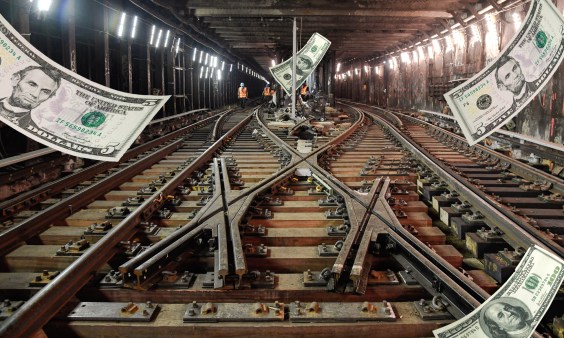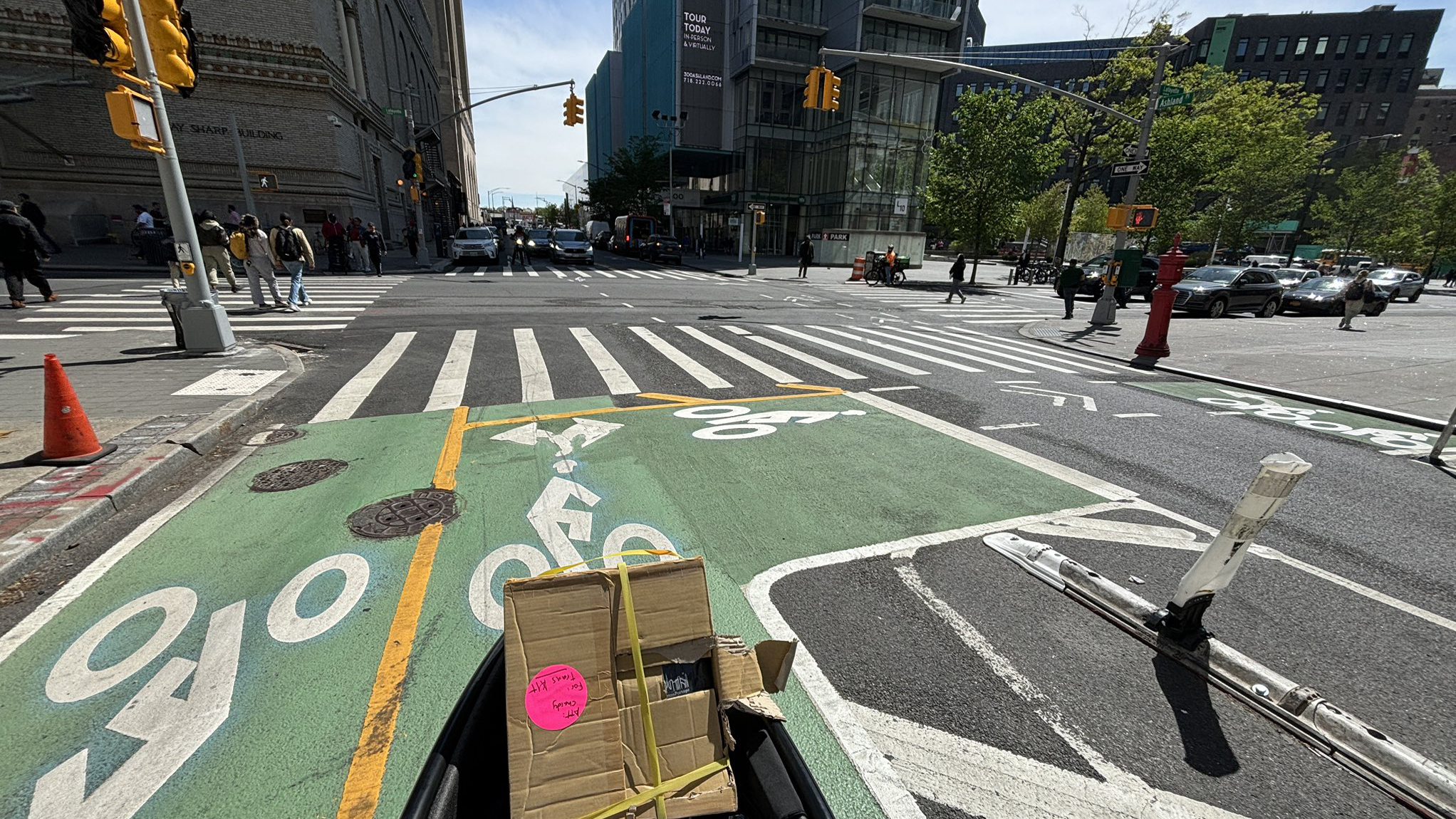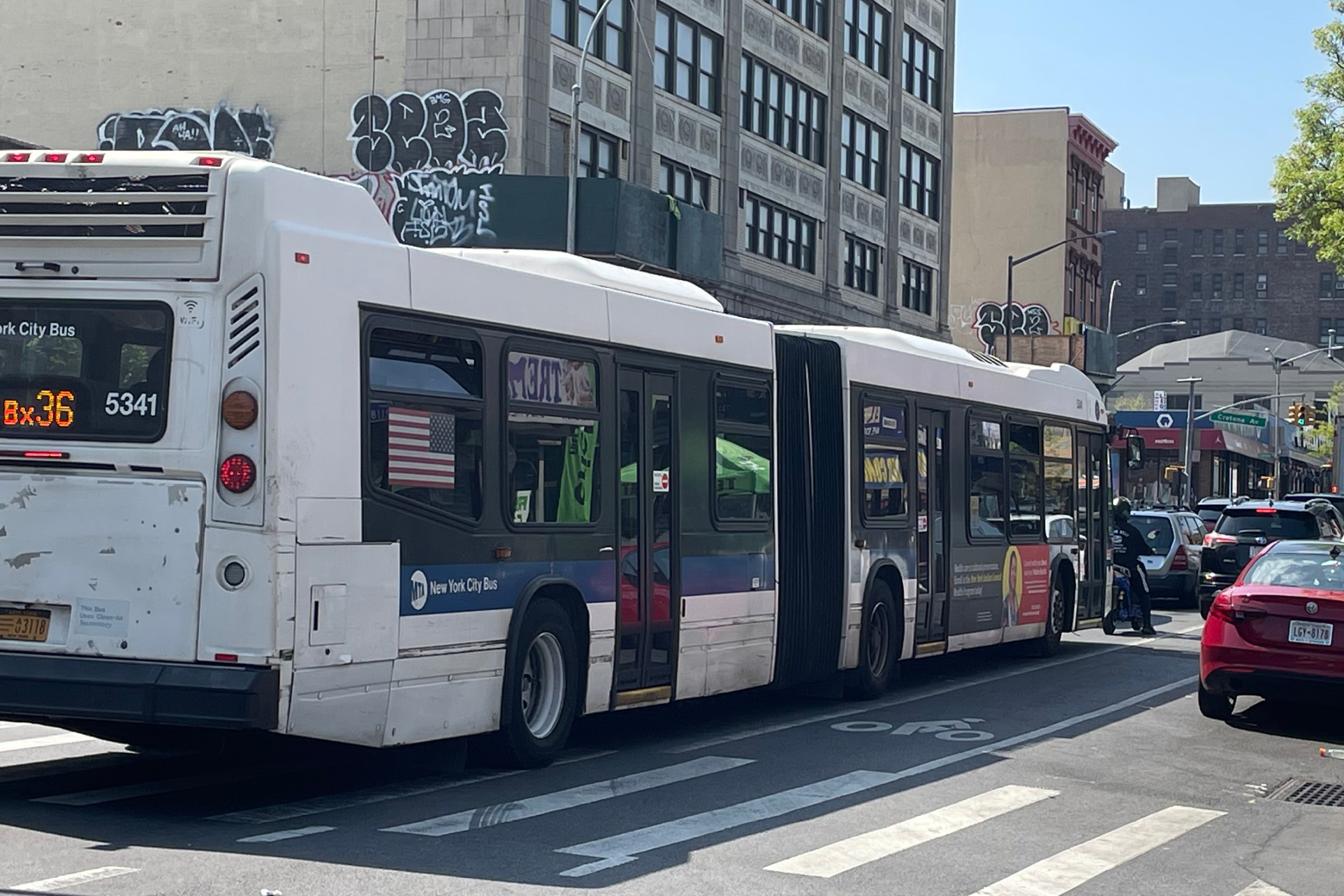Streetsblog does not often write editorials, but given our recent coverage of NYPD officers' reckless driving habits, we felt compelled to address the demand from the police union for cops to be exempted from congestion pricing.
Well, that didn't take long.
One week after state officials made history by with congestion pricing tolls to reduce congestion and raise money for the transit system, police union boss Pat Lynch demanded in the Daily News on Monday that cops should not pay the new charge because "the burden should not fall on the backs of ... public safety professionals who protect the public."
"We shouldn’t have to pay a toll every time we report for duty," added Lynch, the president of the New York City Police Benevolent Association.
Hats off to Lynch's 36,000 members, whose job is, indeed, to serve the public. But Lynch's call for the exemption from the toll is built on a series of fallacies that public officials must keep in mind as they consider his absurd request.
Yes, cops are critical to our city. But they play a role, just as all the teachers, the firefighters, the Sanitation workers, the building maintenance workers, the clerks, the judges, the concrete factory mixers, the transit motormen, the ferry drivers, the food delivery workers, the journalists, the bakers and all of the other millions of workers play a role.
Cops may believe that their work is more heroic than everyone else's — and that their commutes are harder, their burdens much heavier and their needs more realistic — but all New Yorkers who get to work, do their jobs, and, in turn, help their fellow New Yorkers perform their vital tasks are heroes in their own way, too. All of our collective labor keeps the city running 24-7-365.
And let's talk about getting to work. The vast majority of New Yorkers — the "public" that Lynch speaks of — commute on transit. Congestion pricing was created primarily to fund transit so that it works when all of those workers need it: 24-7-365. The fact that 51 percent of NYPD officers live outside of the city — and the majority drive to work every day — is a personal choice made by those officers. That personal choice comes with many costs: longer commutes, disconnect from the people they serve, high suburban taxes to fund lifestyles very different from those in the city. And now that choice comes with a new cost: a small fee to benefit the millions of people every day who ride the rails or the buses.
And cops are not as underpaid as Lynch would have you believe: After five years, a police officer's base salary before overtime is $85,000 — roughly $30,000 more than the median income in New York City. If millions of people live in the city on less than $85,000, our guess is that police officers could, too.
Should officers get a raise? Of course they should — but only with a mandate that they must live within the five boroughs. Then they could truly serve the public and would "need" their cars even less.
The biggest fallacy in Lynch's argument is his inability to see beyond the dashboard of his own car:
Police officers should receive an exemption because we require the greatest possible flexibility to get to work. Our regular work schedules are anything but regular. We protect New York City 24 hours a day, 365 days year, and we are often required to report for duty at times and locations that are not adequately served by any form of mass transit.
Earth to Lynch: Congestion fees would only apply to drivers who enter Manhattan below 61st Street, which may indeed be the most transit-rich place on the planet. Lynch argues that some officers assigned to the Bronx or Queens sometimes have to report for duty in the congestion zone at a moment's notice. Good: Congestion pricing will both help those cops get to their detail faster on transit or by car, if they "must" drive, as Lynch believes they must.
And lest we forget: City policy should discourage, not encourage, police driving whenever possible. Streetsblog's ongoing investigation into the personal driving records of NYPD officers and employeeshas revealed that police personnel receive multiple serious moving violations at twice the rate of the general public. Our series uncovered officerswith dozens of speeding and red-light tickets — even as Mayor de Blasio enables reckless driving by promising more parking spaces for officers, an invitation for more driving, not less.
So we call on soon-to-be-created six-member Traffic Mobility Review Board to reject this hubristic demand from Pat Lynch to undermine congestion pricing. If cops truly want to protect and serve, it starts with paying their fair share to improve the commutes for all New Yorkers.
